
Abdulkarim Mohammed
Ghana
Abdulkarim Mohammed is the Country Manager for the International Budget Partnership (IBP) in Ghana where he works with vulnerable smallholder farmers and mining affected communities to demand improvement in basic service delivery through enhanced fiscal governance. Prior to IBP he was the Program Manager for Active Citizenship & Accountable Governance with Oxfam in Ghana where he led efforts to increase revenue transparency and state accountability through citizen’s influence over public finances, particularly those derived from extractive industries and foreign assistance. Karim also led advocacy initiatives for political reforms and citizen-driven social accountability aimed at consolidating Ghana’s democratic experiment.
Read Abdulkarim’s post: Do We Mean What We Say for Accountability in Ghana?
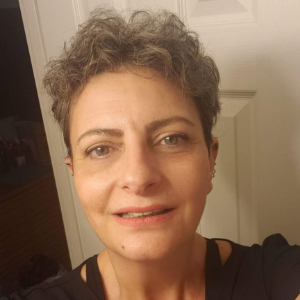
Amy Ekdawi
Arab Watch Coalition
Amy has been working with pro-rights civil society movements around the world in the last 30 years. Her work in the last 15 years has focused on connecting the local pro-rights southern movements to the global pro-rights northern movements in order to promote for social, economic, and environmental justice in the policies and portfolios of International Financial Institutions. Before joining Arab Watch Coalition, Amy was leading the regional programs around the world, including in MENA region, for the Bank Information Center- a nonprofit watchdog in the US. Amy has master’s degree in International Relations from Elliott School, George Washington University in Washington DC, and a Participatory Community Development Diploma from Coady Institute, St. Xavier University, Canada. She has another Masters in French-Arabic Interpretation from Ain Shams University in Egypt from where she had received a Bachelor in French Language and Literature few years earlier. Amy enjoys intelligent and informed debates. She can spend her days following non-stop political debates.
ايمي عقداوى
المديرة المشاركة لتحالف اراب وتش
تعمل ايمي مع حركات المجتمع المدني ذات التوجه الحقوقي حول العالم منذ 30 عاما. في السنوات الخمس عشر الماضية تركز عملها على تسهيل التواصل بين الحركات المحلية الحقوقية مع الحركات الحقوقية العالمية من اجل تعزيز العدالة الإجتماعية، والإقتصادية والبيئية في سياسات ومحافظ مؤسسات التمويل الدولية
ايمي حاصلة على درجة الماجستير في العلاقات الدولية من جامعة جورج واشنطن في امريكا، ودبلوم في التنمية المجتمعية التشاركية من معهد كودي بجامعة سانت اكسفيير في كندا. تحمل ايمي درجة ماجستير اخرى في الترجمة من والي العربية والفرنسية من جامعة عين شمس في مصر
Read Amy’s posts:
Beirut’s “You Stink” Movement: A Tongue in Cheek Slogan to Hold Officials Accountable

Anuradha Joshi
Institute of Development Studies
Anuradha Joshi is a senior research fellow at the Institute of Development Studies, Sussex. She currently co-leads a multi-country research programme Action for Empowerment and Accountability (A4EA) which is examining the conditions under which social and political action may lead empowerment and accountability in contexts of fragility, conflict and violence.
Read Anuradha’s post: The Use of ‘Causal Chain’ Analysis in Strengthening Public Accountability
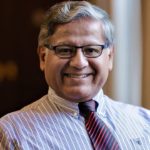
Ariel Frisancho
Peru
Ariel Frisancho es Director Nacional de CMMB Perú desde 2015. Maestro en Política, Planificación y Financiamiento de la Salud por la Universidad de Londres (LSE / LSH&TM, 2001-2002). Especialista en Enfoque de Derechos, Participación Ciudadana y Gobernabilidad en Salud. Miembro del Comité Directivo de COPASAH. Antes fue presidente de ForoSalud (2012-2013) y miembro de su Comité Directivo (2004-2016). Enviar correo electrónico a Ariel.
Ariel Frisancho (M.D.) is CMMB Peru’s Country Director (2015-present). He has a MSc in Health Policy, Planning and Financing (LSE / LSH&TM, 2001-2002), and specializes in rights-based approaches, citizen participation and health governance. Frisancho is also a member of the COPASAH Steering Committee. He previously served as Peru’s ForoSalud President (2012-2013) and was a member of ForoSalud’s Directorate (2004-2016). Email Ariel.
Read Ariel’s posts:
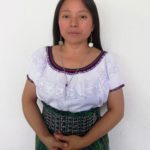
Benilda Batzin
Guatemala
Es Licenciada en Trabajo Social, egresada de la Universidad Mariano Gálvez de Guatemala. En el 2020 Benilda fue nombrada como Directora Ejecutiva y es la primera mujer indígena electa como Directora Ejecutiva del Centro de estudios para la equidad y gobernanza en los sistemas de salud (CEGSS). Benilda cuenta con más de 10 años de experiencia trabajando con comunidades rurales en Guatemala, ejecutando e implementado proyectos y programas de desarrollo. Esto incluye la promoción de la participación ciudadana por el Derecho de los Pueblos Indígenas, Derecho a la Salud y al Ambiente, Derechos Humanos de las Mujeres, Equidad de Género para una participación ciudadana equitativa y sin discriminación.
Benilda is a licensed social worker and a graduate of the Mariano Gálvez University in Guatemala. In 2020 Benilda was named Executive Director of the Center for the Study of Equity and Governance in Health Systems (CEGSS). She is the first indigenous woman elected to this position. Benilda has over 10 years’ experience working with rural communities in Guatemala, running and implementing development programs and projects. This includes promoting citizen participation for the Rights of Indigenous Peoples, Rights to Health and the Environment, Human Rights of Women, and Gender Equity for an equitable and non-discriminatory citizen participation.
Read Benilda’s posts:
Defensor/a: A Term to Refer to Indigenous Health Rights Defenders in Guatemala
Conceptos de rendición de cuentas en idiomas Mayas de Guatemala
Communicating Accountability Concepts in Mayan Languages of Guatemala

Brendan Halloran
United States
Brendan Halloran is the Head of Strategy and Learning at the International Budget Partnership. Prior to this he led the learning efforts at the Transparency and Accountability Initiative.
Read Brendan’s post: Accountability Ecosystems: The Evolution of a Keyword
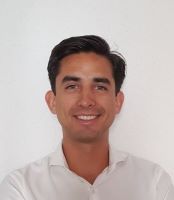
Carlos G. Guerrero Orozco
Mexico
Carlos G. Guerrero Orozco is a consultant and trial attorney based in Mexico City. He leads the anti-corruption and compliance litigation practice for private sector companies at López Melih y Estrada, a Mexican law firm. He is also co-founder and president of Human Rights and Mexican Strategic Litigation, a Mexican civil society organization. He is a lawyer from the Escuela Libre de Derecho (Mexico City) and holds a Masters in government and public administration from the Ortega y Gasset University Research Institute (Madrid).
Read Carlos’s posts:
Balance del nuevo programa de denunciantes del gobierno mexicano
Taking stock of the Mexican Government’s Rebranded Whistleblower Program

Charles H. Roberts
United States
Charles H. Roberts is a lawyer and translator based in Washington, DC.
Charles H. Roberts es abogado y traductor.
Read Charles’s posts:
Top-down Accountability vs. Electoral Democracy: The Case of Colombia’s Inspector General

Chieftainess Msoro VII (Linda Wanga Saili)
Zambia
Her Royal Highness Chieftainess Msoro VII (Linda Wanga Saili) was installed as a chief on September 1st, 2018, in Msoro chiefdom, Mambwe District in the Eastern Province of Zambia. Previously, Chieftainess Msoro served in various portfolios in the development sector. She holds a master’s degree in journalism from the University of Westminster in the United Kingdom. Chieftainess Msoro is leading a chiefdom of about 42,000 people. She believes that the time has come for rural communities to play an active role in their own development processes.
Read Chieftainess Msoro’s post: The Responsible Use of Authority and Power with the Spirit of Ubuntu: The Msoro Chiefdom in Zambia
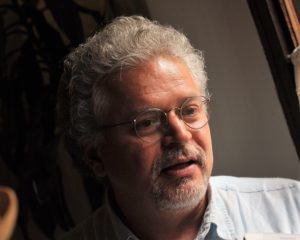
Ernesto Isunza-Vera
Mexico
Ernesto Isunza-Vera es profesor investigador del Centro de Investigaciones y Estudios Superiores en Antropología Social (CIESAS), en el que es también responsable académico del programa especial “CCiudadano. Construcción y articulación de lo público”. Así mismo, es investigador asociado del Centro de Estudios de la Metrópoli/Centro Brasileño de Análisis y Planeación (São Paulo, Brasil).
Ernesto Isunza-Vera is a research professor at the Center for Research and Higher Studies in Social Anthropology (CIESAS), where he is also the scholar in charge of the special program “CCiudadano. Construcción y articulación de lo público.” Additionally, he is an associate researcher at Center for Metropolitan Studies / Brazilian Center for Analysis and Planning (São Paulo, Brazil).
Read Ernesto’s posts:
From the Imported Term “Accountability” to Democratic Public Control in Latin America
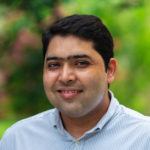
Fayyaz Yaseen
Pakistan
Fayyaz Yaseen heads the Pakistan office of the Accountability Lab. He holds a Masters degree in economics and M.Phil in international development studies. He can be reached at fayyaz@accountabilitylab.org; and through his twitter handle @fayyaz_yaseen.
Read Fayyaz’s post: The Language of Accountability in Pakistan
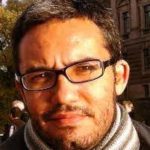
Felipe J. Hevia
Mexico
Felipe J. Hevia received his doctorate in Anthropology from Centro de Investigaciones y Estudios Superiores en Antropologia Social (CIESAS), where he has been a Research Professor since 2009. His research interests focus on citizen participation, accountability, poverty reduction and education. He has published 5 books and more than 60 articles and book chapters. His research has received awards from the Mexican Academy of Sciences, the University of Luxembourg, the RISC consortium, the UNDP, the IDB, the government of Brazil, the Chamber of Deputies of Mexico and the Latin American Council of Administration-CLAD. He is coordinator of the project Independent Measurement of Learning (MIA), and a member of the Mexican Academy of Sciences and the National System of Researchers of Mexico.
Felipe J. Hevia es Doctor en antropología por Centro de Investigaciones y Estudios Superiores en Antropología Social (CIESAS). Profesor-investigador del CIESAS desde 2009. Sus intereses de investigación se centran en participación ciudadana, rendición de cuentas, combate a la pobreza y educación. Ha publicado diversos libros, y más de 60 artículos y capítulos de libros. Sus investigaciones han sido premiadas por la Academia Mexicana de Ciencias, la Universidad de Luxemburgo, el consorcio RISC, el PNUD, el BID, el gobierno de Brasil, la Cámara de Diputados de México y el Consejo Latinoamericano de Administración–CLAD. Es coordinador del proyecto Medición Independiente de Aprendizajes (MIA), miembro de la Academia Mexicana de Ciencias, y del Sistema Nacional de Investigadores.
Read Felipe’s posts:

Francis Isaac
The Philippines
Francis Isaac is research and knowledge officer of Government Watch (G-Watch) and editor-in-chief of SocDem Asia Quarterly. He holds a master’s degree in international studies from De La Salle University (Manila).
Read Francis’s posts:
Vertical Integration: Localizing the Concept
Pananagutan: Accountability and the Struggle for Filipino Nationhood
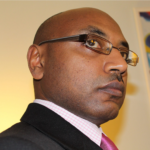
Gutu Olana Wayessa
Ethiopia
Gutu Olana Wayessa is a researcher in Global Development Studies, at the University of Helsinki, Finland. Previously, he served as a lecturer (2019-2020) and a postdoctoral researcher (2016-2019), as well as a postdoctoral researcher at the University of Luxembourg (2014-2016). In 2019, he was a visiting research scholar at the American University, Washington DC, USA. He received a PhD in Social Sciences (major in Development Studies) from the University of Helsinki.
Read Gutu’s post: The Oromo Gadaa System and its Accountability Values
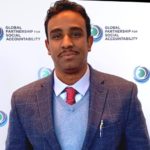
Haytham Karar
Sudan
Haytham is an international development practitioner. He earned a bachelor’s degree from Khartoum University in Sudan, and a Master of Arts from the American University, USA. He is also trained at the Hertie School of Governance on Public Administration, with a particular focus on Anti-Corruption Policy. He is the author of many academic papers published in well-read journals, such as the Journal of Developing Society and Italian Journal of Sociology of Education. He advised many international organizations on governance and anti-corruption in Sudan.
Read Haythem’s post: We Want to Know: Strengthening Accountability in Sudan
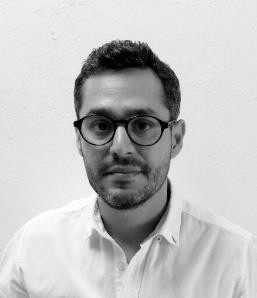
Héctor Manuel Gutiérrez Magaña
Mexico
Héctor Manuel Gutiérrez Magaña has a PhD in Social Science Research in political science from FLACSO, Mexico. He is a member of the Academy Against Corruption in the Americas. He has worked as a professor, journalist, and consultant in the private sector. He currently works as an independent researcher. His lines of research involve citizen participation and accountability, political representation, and democratic innovations.
Read Héctor’s posts: ¿Vigilancia sin control? Las veedurías ciudadanas en Colombia y Ecuador
Monitoring without Control? Citizen Oversight Committees in Colombia and Ecuador

Iván Benumea
Mexico
Iván Benumea, coordinador del programa de Justicia Fiscal en Fundar. Abogado, especialista en política fiscal y su vínculo con los derechos humanos.
Iván Benumea is the coordinator of the Fiscal Justice program in Fundar. He is a lawyer and a specialist in tax policy and its link with human rights.
Read Iván’s posts:
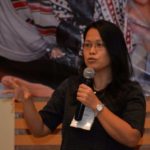
Joy Aceron
The Philippines
Joy Aceron is convenor-director of Government Watch (G-Watch) and research fellow-adviser to Accountability Research Center (ARC).
Read Joy’s posts:
‘Accountability Frontliners’: Citizen Monitors are on the Frontlines of the Pandemic Too

Judy Gearhart
United States
Judy Gearhart is a visiting scholar at ARC and an adjunct professor at Columbia University. Previously she served nine years as the executive director at the International Labor Rights Forum and twelve as the programs director at Social Accountability International. She has worked for the UN and grassroots NGOs in Mexico and Honduras on trade, labor rights, and democratic participation.
Read Judy’s post: The Corporate Accountability Paradox
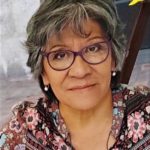
Luz Estrada
Peru
Luz Estrada es socióloga y antropóloga, experta en salud sexual y reproductiva y activista en el movimiento de mujeres del Perú. Especialista en interculturalidad y género. Lideró proyectos dirigidos a mujeres campesinas, en agricultura andina y derechos sexuales y reproductivos. Antes fue coordinadora de ForoSalud Puno. Enviar correo electrónico a Luz.
Luz Estrada is a sociologist and anthropologist, a specialist on sexual, reproductive health, gender, interculturality and is a Peruvian Women Movement’s activist. She has coordinated projects oriented to grass-roots women’s movements, Andean agriculture and sexual & reproductive rights. She is ForoSalud’s former Puno regional coordinator (2004-2008). Email Luz.
Read Luz’s posts:
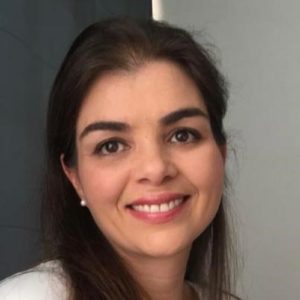
Mariana Cepeda Villarreal
Colombia
Mariana Cepeda Villarreal majored in political science in Los Andes University in Colombia and received a master’s degree in International Development from the School of International Service (SIS) at American University. Since 2017 she has worked as a researcher for the Accountability Research Center. She has worked in non-governmental organizations and for the Colombian government in the formulation and monitoring of transparency and anti-corruption public policies. She is interested in issues related to transparency and social accountability, public management, peacebuilding, and the rights of ethnic communities.
Read Mariana’s posts:
¿Vigilancia sin control? Las veedurías ciudadanas en Colombia y Ecuador
Monitoring without Control? Citizen Oversight Committees in Colombia and Ecuador

Mariana Gurrola
Mexico
Mariana Gurrola, coordinadora del área de Comunicación para la Incidencia en Fundar. Comunicóloga social enfocada en la creación de campañas para la defensa y promoción de los derechos humanos.
Mariana Gurrola is the coordinator of the area of Communication for Advocacy in Fundar. She is a social communicator focused on creating campaigns for the defense and promotion of human rights.
Read Mariana’s posts:

Matthew Stephenson
United States
Matthew Stephenson is Professor of Law at Harvard Law School, where he teaches administrative law, legislation and regulation, anti-corruption law, and political economy of public law. His research focuses on the application of positive political theory to public law, particularly in the areas of administrative procedure, anti-corruption, judicial institutions, and separation of powers. Prior to joining the Harvard Law School faculty, Professor Stephenson clerked for Senior Judge Stephen Williams on the D.C. Circuit and for Justice Anthony Kennedy on the Supreme Court. He received his J.D. and Ph.D. (political science) from Harvard in 2003, and his B.A. from Harvard College in 1997.
Read Matthew’s post: The Swahili Word for Transparency, and the Fallacies of Linguistic Determinism

Marcio Cunha Filho
Brasil / Brazil
Marcio Cunha Filho é doutor em Direito (Universidade de Brasília), Mestre em Ciência Política (Universidade Federal do Rio Grande do Sul) e professor do Instituto Brasileiro de Ensino, Pesquisa e Desenvolvimento (IDP). Foi pesquisador visitante na American University (2016-2017).
Marcio Cunha Filho holds a PhD in Law from the University of Brasilia and a master’s degree in Political Science from the Federal University of Rio Grande do Sul. He was a research fellow at American University in 2016-2017 and is currently a professor at the Institute of Public Law in Brasília and a Federal Auditor at the Office of the Comptroller General.
Read Marcio’s posts:
Public ouvidorias in Brazil: From Accounting to Multifaceted Accountability
Ouvidorias públicas no Brasil: do controle contábil-financeiro ao controle social

Moses Ngulube
Zambia
Moses Ngulube leads the governance work at Catholic Relief Services as Senior Technical Advisor (Governance). He holds several postgraduate credentials in languages, humanitarian affairs, governance, and development policy. Moses contributes to participatory governance discussions on Twitter @NgulubeMoze.
Read Moses’s post: The Responsible Use of Authority and Power with the Spirit of Ubuntu: The Msoro Chiefdom in Zambia
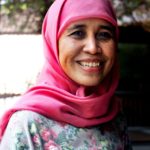
Nani Zulminarni
Indonesia
Nani Zulminarni is the founder and chair of the PEKKA (Women-Headed Family Empowerment) Foundation board. She is also a co-founder of JASS (Just Associates) and the president of ASPBAE (Asia South Pacific Association for Basic and Adult Education). Additionally, Nani serves as a South East Asia Regional Leader with ASHOKA.
Read Nani’s post: Introducing the Concept of Social Accountability in Women’s Cooperatives in Indonesia

Nitin Jadhav
India
Dr. Nitin Jadhav is a Homeopath with completed Masters’ in medical and Psychiatry Social Work. For the past 13 years, he has worked as a Community Health Practitioner focusing on developing and implementing various innovative community-based accountability processes for ensuring communitization and democratization of Public Health Systems and policies in India. In profession, he was associated with NGO i.e. SATHI- Support for Advocacy and Training to health Initiatives based in Maharashtra state of India and currently working in the organization, SAMA- Resource team for Women and Health based in New Delhi, India. Dr. Nitin is also active in various state and nation wide networks and campaigns India and state of Maharashtra such as People’s Health Movement (PHM) i.e. Jan Swasthya Abhiyan; also associated with a state-wide network called Mahila Kisan Adikar Manch (MAKAAM) i.e. Forum For Women Farmers’ Rights.
Read Nitin’s post: How are Transparency and Window-dressing Understood in the Marathi Language?
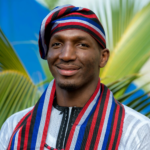
Odeh Friday
Nigeria
Odeh Friday has a background in Mathematics and is currently studying for an M.Sc. in Psychology. Currently, Odeh works closely with communities and stakeholders to make governance work for citizens in his work with the Accountability Lab (AL) Nigeria.
Read Odeh’s post: The Message(s) in the Music: Lyrics Promote Accountability in Nigeria
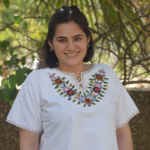
Rajika Seth
India
Rajika is the Learning and Development Officer at Accountability Initiative (AI), Centre for Policy Research. The key focus of her role is to catalyze change by creating structured learning opportunities- courses, workshops and experiential programs that enable citizens, government and institutions to participate in and monitor social programs. She is currently involved with developing and managing AI’s flagship capacity building program, ‘PAISA Course’ for internal and external audiences. She also overlooks Communications at AI. Rajika was previously working with Teach for India, as part of their Alumni Impact team designing and developing programs to enable current Fellows and Alumni to remain engaged and committed to the education movement in India. She has a Masters in Development Studies from the Institute of Development Studies, University of Sussex, UK and a Bachelors in English Literature from Gargi College, Delhi University.
Read Rajika’s post: A Novel Attempt to Break the Language Barrier in Research
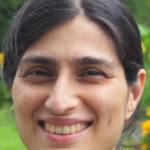
Suchi Pande
India
Suchi Pande, a researcher and activist, is scholar-in-residence at the Accountability Research Center, Washington DC.
Read Suchi’s posts:
Social Audits in India: Institutionalizing Citizen Oversight
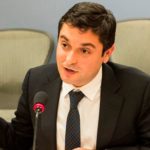
Tiago Carneiro Peixoto
Brazil
Tiago is a Senior Public Sector Specialist at the World Bank’s Governance Global Practice. Having joined the Bank in 2010, Tiago’s activities focus on working with governments to develop solutions for better public policies and services. Prior to joining the World Bank, Tiago has managed projects and consulted for a number of organizations, such as the European Commission, OECD, United Nations, Bertelsmann Foundation, and the Brazilian and UK governments. Formerly a research coordinator for the Electronic Democracy Centre at the University of Zurich, Tiago is currently a faculty member of New York University’s Governance Lab. A board member for Our Cities Network and Intelligent Digital Avatars, he also sits in the advisory boards of a number of organizations such as The Participatory Budgeting Project and Our City Thoughts. Featured in TechCrunch as one of the “20 Most Innovative People in Democracy”, Tiago holds a PhD and a Masters in Political Science from the European University Institute, as well as a Masters in Organized Collective Action from Sciences-Po Paris. He blogs at DemocracySpot and tweets at @participatory.
Read Tiago’s post: Open Government, Feedback Loops, and Semantic Extravaganza
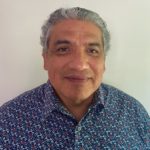
Walter Flores
Guatemala
Walter Flores is the founder and past Director of the Centro de Estudios para la Equidad y Gobernanza en los Sistemas de Salud (CEGSS) in Guatemala. Follow on @CEGSSGuatemala!
Read Walter’s post: Different Understandings of ‘Control Social’ in Latin America

Yifei Li
China
Yifei Li is Assistant Professor of Environmental Studies at NYU Shanghai and Global Network Assistant Professor at NYU.
Read Yifei’s post: The Promise of Whistleblowing in China

